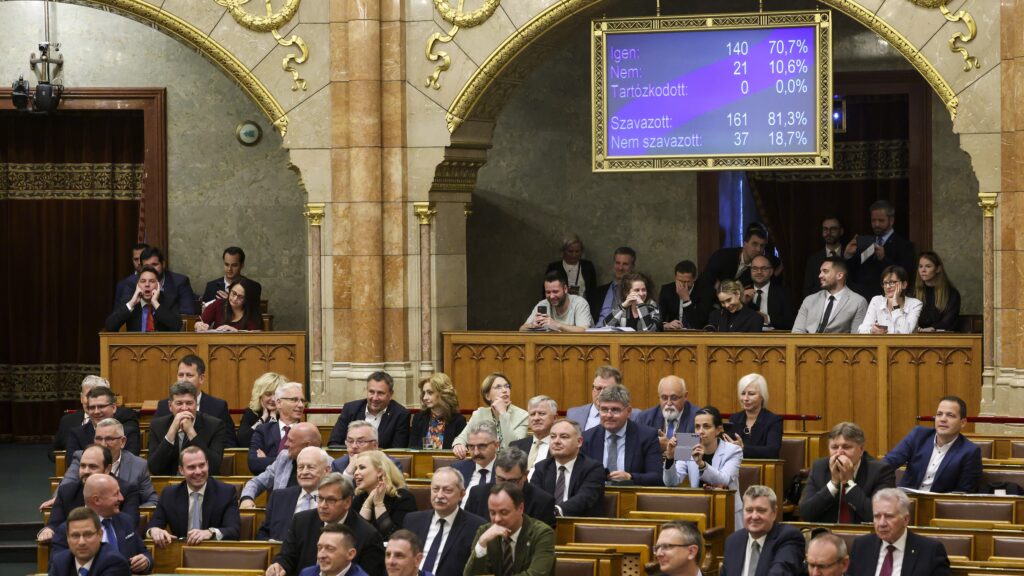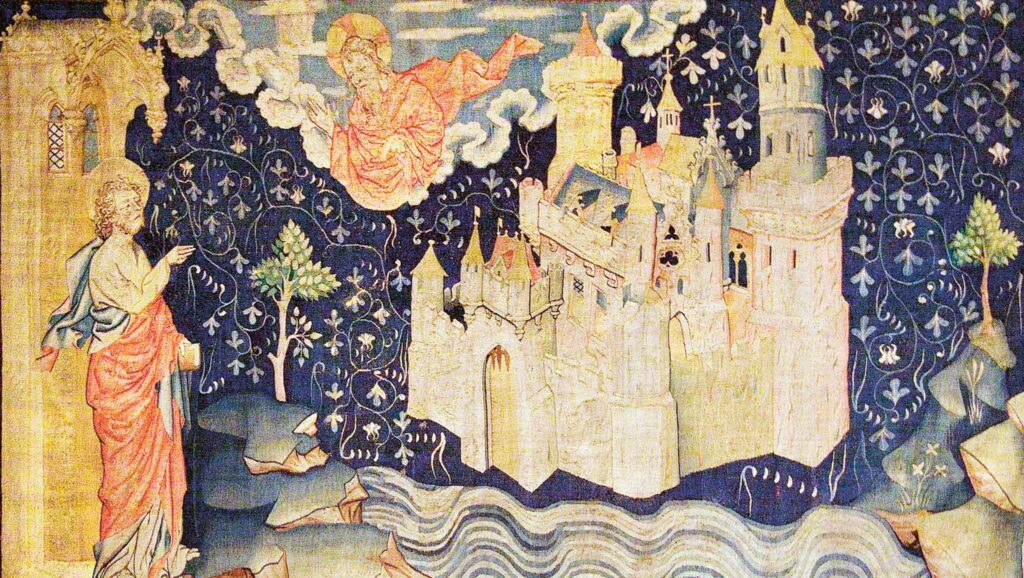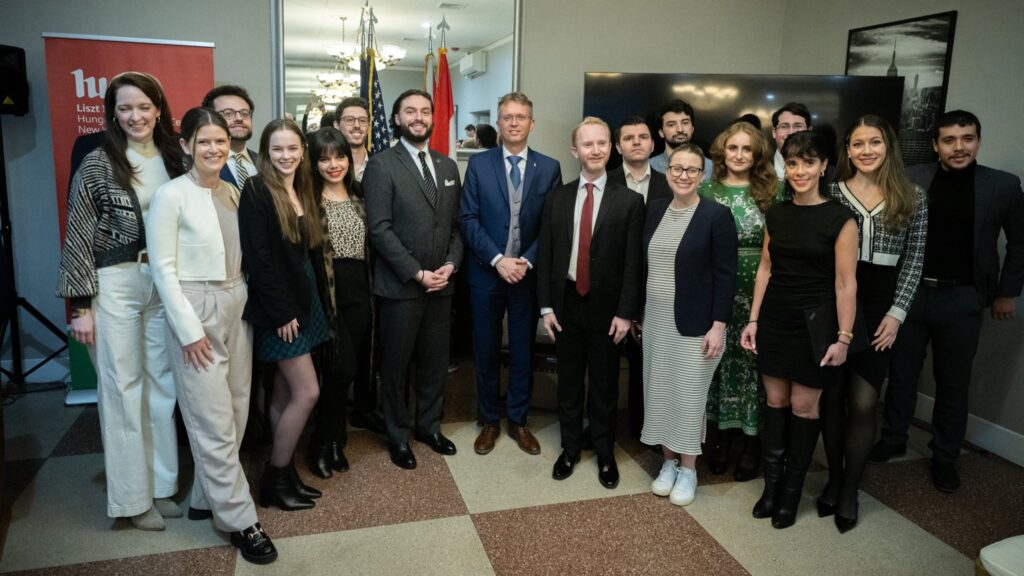Pierre Manent Interviewed by Eszter Kovács
Speaking about protection implies a pre- existing threat.
You are right, if we talk about protection, it logically entails the existence of a threat. The idea of the protection of the European way of life has generated a lot of negative reactions. Before we go any further, we have to make it clear that it is very novel for the Europeans to find themselves in a defensive position against the direction the world is moving in (le mouvement du monde), since over the past several centuries, I would say the past two centuries, but essentially since the discovery of the New World, that is, approximately since 1500, it was the Europeans who set the world in motion, and they were the ones against whom the others had to defend themselves, with varying degrees of effectiveness. In fact, for centuries, others were incapable of protecting themselves against the forces initiated, generated, and maintained by Europe, i.e. the European spirit, its science, military power, and technology, as well as its prestige, the splendour of the novel way in which they organized their social life and satisfied human needs.
And perhaps even more difficulty establishing a dialogue between them?
Of course. They are incapable of dialogue since each opinion exists in a sense because of the other, in opposition to each other, but each of them is also divided. The respectable opinion, which is leading nowadays, the opinion which stands for openness, is divided between a version that claims unlimited and unconditional openness, and another opinion, which, while also referring to human rights, does not accept unconditional openness, which would say, ‘Sure, the migrants can come, provided that they respect certain European principles’. For instance, ‘Of course, it is reasonable, necessary, and just to accept Muslim immigration, but it is necessary that the Muslims who settle down in Europe accept certain fundamental principles of our life, namely human rights, more specifically equality between men and women’. We can see that on the French left there is a very clear divide between those for whom progress means accepting a multicultural society and those for whom the idea of progress would be to impose certain values of the Republic, particularly on Muslim populations, for which equality between the sexes is not in evidence. We can see this tension, this divide within the progressist group. As for the populists, they are even more perplexed, because in essence there is no positive explanation on the populist side for what they aim to do, of what they want to achieve. Politically they are more or less flourishing, but they flourish simply because they voice the worries and the anxiety of a large part of the population about these developments, and particularly over the migratory movement, which makes people say, as everyone says nowadays: ‘We are not at home any more.’ But obviously this feeling and this recognition are not enough to constitute a political thought. The populists obtain good results at the elections, anyhow, in Western Europe, saying, ‘They are changing our country, no one asked us our opinion, the elite are not interested in our lives but impose uncontrolled immigration on us, it is unacceptable’. One can easily understand this reaction, but it does not comprise a real political reflection. It can be rendered by the slogan ‘This is our home’. This is a catchy slogan, but politically speaking it is very weak. To counter it, it is enough to point out that it is also the home of the large number of Muslim citizens in France. Therefore saying ‘This is our home’ does not move us forward. Basically, the problem is that those who protest against present-day globalization do not know how to express their feelings. That is one of the reasons why they often resort to polemical or aggressive posturing, perhaps because populist leaders in some way lack education, but also because it is very difficult to express such things. It is certain that if we say that the European way of life must be protected, and here I return to your original question, we also have to ask, what does the European way of life consist of?
Indeed. There are two recurrent notions in this discourse: liberty and norms, since to defend a way of life is only possible in the name of a norm. And later on, in the debate, we have to face the idea of the transgression of norms. Do you think that there is a real reflection about freedom and norms, or are these only discursive elements without a clear meaning?
I think that it is very hard to formulate in a politically relevant and meaningful way what this European way of life that we need to defend consists of. Why? Simply because Europe is the place on Earth where historical changes have been the most considerable. Let us consider the two major characteristics of European history, the Christian matrix and the Enlightenment. What is specific to Europe in comparison to other regions of the world? It is that Europe is a continent shaped by Christianity. What else is specific to Europe? The Enlightenment. Although the movement of the Enlightenment —and this is nothing you do not already know—was largely a criticism of the Christian religion. If we urge people to defend the European way of life, is it to defend Christian Europe or the Europe of the Enlightenment? Yet if we wish to protect the Europe of the Enlightenment, then the philosophy of human rights takes us back to the prevailing opinion, which considers that what is proper for Europe is the respect for human rights, and hence globalization is perfectly welcome. A great deal of effort is needed to work out what it is that must be preserved—and not only preserved, but also promoted. You have just said ‘liberty’ and ‘norm’, but we have to take a closer look at what I have just said when evoking Christianity and the Enlightenment.
This leads us to the question of secularization. We live in states and are citizens of states which define themselves as secular, more or less. Reintroducing a Christian element in politics is highly debatable. In the opinion of certain people, progress and secularism, progress and secularization go together. Others challenge this idea, linking progress and secularism. What do you think about this parallel which many people draw between the two?
And it also determined the mores and habits.
Exactly. At least a part of the family was Catholic: the husband called himself a secular republican, while his wife was Catholic. For instance, it caused a scandal that Jaurès’s daughter had her first communion. In truth, there was an osmosis between the Church, the society, and France. It had to be torn apart, and it happened in a necessarily violent way in a society that was both republican and Catholic at the same time. With Islam, the problem is the opposite. The question is not about how to separate but how to unite. The challenge is to incorporate into the national life populations that have not been part of it equally. Of course, there were Muslims in the French colonies, but they were definitely not part of the Republic equally. They had a different status; they were not considered equal citizens. Therefore, something must be carried out which is unknown and has not been done before, and this is not to separate the government and Islam, since Islam has never comprised part of the government in France. The task is not to extract the members of society from an educational hegemony held by the Muslims in France. What I say is absolutely obvious and still everyone says ‘secularism’, ‘we will do with the Muslims the same thing that we did with the Catholics and that’s it’. This reasoning is anything but sound. We can see why secularism is only of very slight concern for Islam. There is no separation to carry out. They are separated. They come to participate in the national life, they are present in the country in large numbers, they are citizens and members of the society, but their way of life is clearly distinct from the other part of French society, and in some respects, namely the relation between the sexes, this form of life is very different from that which seems to us good and just. What kind of secular action would restore equality between men and women in Muslim life? It is obvious that the instrument and the object of its action are not compatible. It would not work out. The secular side has found, as a form of release, a way of manifesting its power by demanding the effacement of outer signs: ‘I do so wish we could forbid women, mothers from wearing headscarves (Hijab) when they wait for their children after school.’ It is permitted today, it may be prohibited tomorrow, but it would do nothing to resolve the problem, and merely manifest authority towards them. Secularism in the way it has been developed in the Christian world is not at all adapted to this situation. We can keep the general principle that the government is the master of the law, and religions organize themselves freely, but it is not pertinent, it does not concern the questions raised by the entry of Muslim ways of life into Europe, in a Europe that at this moment is reflecting upon its own way of life. Europe knows full well that integrating the Muslim lifestyle into European life is not easy, so public opinion is divided, and the opposition mentioned at the beginning is very tangible in the relationship towards Islam, as the challenges of globalization and of immigration are more acute in this regard. Thus, we come back to the three positions: unlimited progressivism, total openness or multiculturalism; conditional progressism, ‘They can come but they have to respect quite a few principles that the Republic can legitimately impose on them’; and finally, a conservative position, which says, although in various ways, that ‘Islam is antithetical to the European way of life’, so it is important to limit as much as possible its presence in European life.
And once again there can be no dialogue between these opinions.
That is right, it is very difficult to pursue a dialogue since the viewpoints are completely different. But it also leads to alliances. We can see that the conservatives can ally at times with the unconditional progressivists, saying that the headscarf, in the end, is not so important, it is secondary, it is part of their mores and that if we accept them, then we accept them with their mores. The conservatives may also say this, but they also imply that Muslims should not come in great numbers. By contrast, a conservative can ally with the conditional progressists and agree that we have to impose on Islam, during the time that it is present here, a respect for certain rules, namely the strict equality between men and women.
But to speak of imposing equality seems quite a paradoxical idea. Normally, equality must be present, prior, and not enforced. Here, it is not the case.
For the French, it was the revolutionary tradition. Equality in France was very vigorously enforced in 1789 and over the following years. The idea of imposing equality does not displease a part of the French spirit.
But even if the idea does not displease the French spirit, is it possible to impose equality?
In our case, in 1789, feudal orders and privileges were abolished, so the principle of inequality which ruled social life was put to an end, but in the case of Islam, the equality that we want to see is equality within the family, which concerns inheritance, intimate relationships, etc. Exercising power in these private relationships is very problematic.
And the result is unpredictable.
The result is highly uncertain, indeed. The legitimacy of the intervention is debatable, all the more so since the notion of inequality is sometimes clear but sometimes vague. The state takes up a role, which in its execution is tyrannical and, at the same time, inefficient. That is the situation, a somewhat unpleasant one, that we are facing.
It seems to me that you have answered some of the questions which I have not asked yet but was about to do so. I will perhaps have one more. When we speak about European culture, in truth, we are speaking about different cultures, although we suppose some kind of a unity between them. Now, we are faced by the challenge of opening up and allowing the entry of other cultures. A culture which is unified, at least theoretically, will disintegrate or will become intangible to the future generation. These are also existing viewpoints in this debate.
I think that we are using words which are too abstract in their meaning. Both identity and, of course, culture are abstract notions. Is culture a coherent mechanism that one can describe? No, not at all. Europe has a historical, social, and spiritual narrative that can be recounted, but we cannot say: ‘This is what Europe is.’ We can make a geographical map of Europe, but we cannot make a map of European identity. We have to make it clear what we mean. What do we place at the heart of the reality of Europe? What makes Europe something well defined—different from other areas of civilization? In fact, the notion of civilization seems to be more appropriate here than that of culture. Either way, anyone can say, ‘We have to defend European civilization. We have to defend European identity. We have to defend European culture.’ It is not at all difficult to say, and while it does not necessarily make one popular, it is not difficult to say it either. But what would it mean in practice? Some fundamental questions need to be asked. What is the primary question if we want these notions to make sense? The first question is what place we afford to Christianity. And we will not answer this question simply by speaking of the Christian roots of Europe.
Do you think that there is a balance that can be lost if one of these aspects is set aside?
The stability has already been broken. The Church has been pushed to the margins of society, its legitimacy is weaker than it has ever been, the prevailing opinion looks at it as an institution attached to traditional mores which are opposed to human rights, and in some way, the less social authority the Church has, the more hostility it provokes. This phenomenon is psychologically comprehensible, since the Christian religion has been so far divorced from its spirit that its very traces seem strange and odd.
Obsolete?
Right, obsolete. I can feel clearly this attitude in our society. One of the main questions is the place of Christianity in the public space. And this is not simply a question of numbers. The question is whether what I call the Christian proposal is a still existing theme in the debate or not. I think this is one of the main tasks of Christians who hold on to the visible presence of Christianity. The question is whether there will be enough Christians, and Christians vigorous enough to preserve the presence of Christian issues in public life, to preserve or to bring back into the public debate Christian language, Christian themes, reflections, propositions, and viewpoints inspired and sustained by Christianity. And at this moment no one knows the answer to this question.
Pierre Manent, political scientist and academic. He teaches political philosophy at the L’École des hautes études en sciences sociales, in the Centre de recherches politiques Raymond Aron. From 1974 to 1992, he was Aron’s assistant at the Collège de France. In 1978, Manent became a co- founder of the liberal anti-communist journal Commentaire. Author of more than ten books and dozens of articles, Manent is an active writer, lecturer, and commentator on political philosophy and the European political scene.
Eszter Kovács, assistant research fellow at the Research Institute of Politics and Government of the University of Public Service (NKE EJKK PÁK). She obtained her PhD in French literature in 2008 under joint supervision at the University of Szeged and at École Normale Supérieure de Lyon. She specializes in the history of early modern political thought. She is currently preparing a second Phd in ethics and political philosophy at Eötvös Loránd University.








